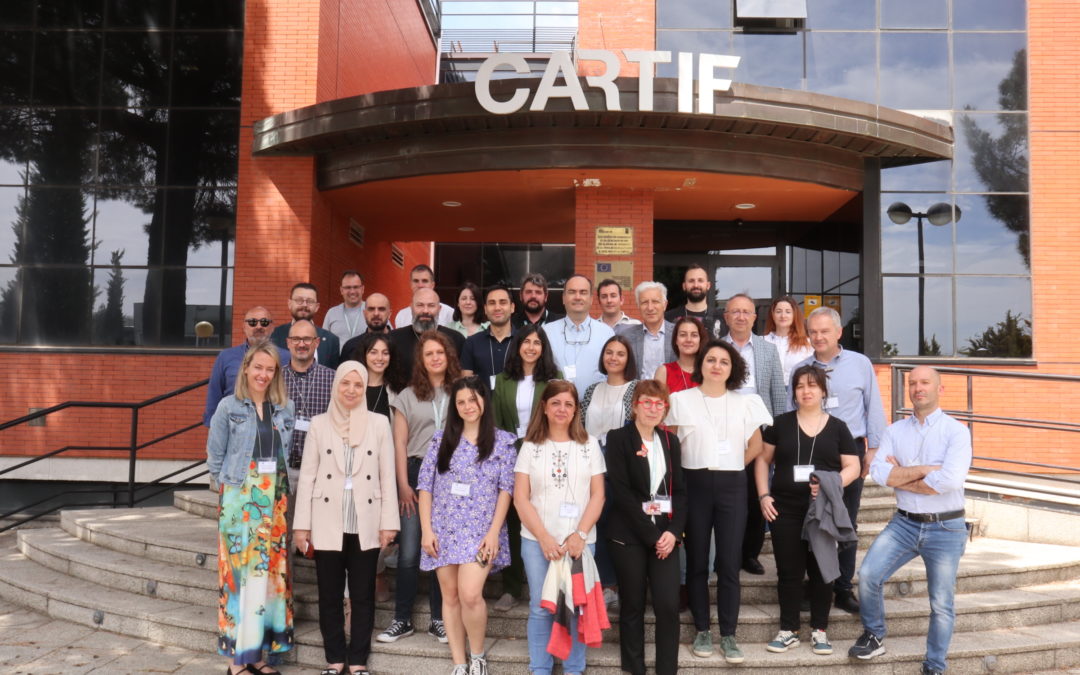The NATMed project has been launched at CARTIF to improve the water cycle in the Mediterranean region by tackling the scarcity and seasonality of water resources through Nature-based Solutions (NBS). The aim of this initiative, coordinated by the technology centre, is to optimise water management and related ecosystem services through a combination of NBS in existing water infrastructures in five countries on the Mediterranean coast: Spain, Italy, Greece, Turkey and Algeria. This week, the consortium from the five participating countries met at CARTIF’s facilities in the Boecillo Technology Park to establish the first steps of the project.
This new working concept, in which traditional sites will be harmonised with the new proposal of Nature based Solutions, has been named “Full water cycle-NbS” (FWC-NbS, Full water cycle – Nature based Solutions). The proposal will be co-designed in five case studies, with different contexts and challenges, which will cover a large part of the coast and expose its evolution in different scenarios.
FWC-NbS 1, to be developed in Spain, is implemented in irrigation ponds to optimise the treatment and storage of treated wastewater for reuse in agricultural irrigation. FWC-NbS 2, to be implemented in Greece, will seek to incorporate natural wetlands to reinforce their storage capacity, treat water and manage the control of polluting discharges. FWC-NbS 3, to be deployed in Italy, will incorporate an aquifer to contribute to nitrate pollution of groundwater in an agricultural context. FWC-NbS 4, to be addressed in Turkey, will be implemented in an aquifer complex to improve distribution networks, groundwater recharge and quality, soil conservation and irrigation techniques in agriculture. Finally, FWC-NbS 5, to be extended in Algeria, will be implemented in an artificial surface channel to improve water quality and quantity.
CARTIF’s role in this proposal, in addition to acting as the coordinator of the proposal, will be to carry out the analysis and diagnosis of the current situation in the framework of the water region of each case study, as well as of the Nature Based Solutions proposed to be implemented in each of them. In addition, it will be responsible for the co-design of the “full cycle NBS” taking into account the challenges of each region. In the case of the FWC-NbS 1 in Spain, CARTIF will participate in the definition of the case study, collaborating in the technical specifications of the solutions, monitoring and impact assessment. The project has a total duration of 6 years.
